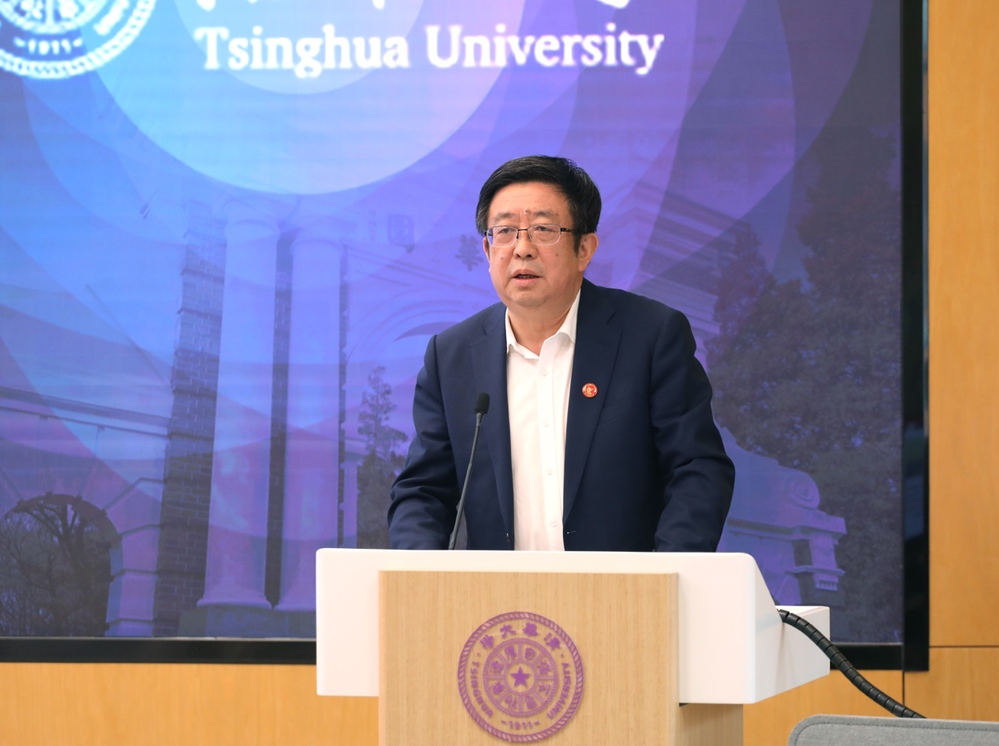
The following is a summary of Ma Haitao's keynote address to attendees at the Sixth Annual Conference of Government and Economics held at Tsinghua University, Beijing, on April 27, 2024. Dr. Ma is President of the Central University of Finance and Economics and Secretary-General of the Applied Economics Discipline Evaluation Group under the Academic Degree Committee of the State Council.
On April 27, 2024, the Sixth Annual Conference of Government and Economics, co-hosted by the Society for the Analysis of Government and Economics (SAGE) along with Tsinghua University's School of Social Sciences and the Academic Center for Chinese Economic Practice and Thinking (ACCEPT), was convened on campus at Tsinghua University. President of the Central University of Finance and Economics and Secretary-General of the Applied Economics Discipline Evaluation Group under the Academic Degree Committee of the State Council, Ma Haitao, delivered a keynote address to attendees at the conference commenting on the need for continued reforms to China's fiscal and tax system.
Ma Haitao considered how "a new round of reforms to the fiscal and tax system should be designed" as repeatedly put forward by the Central Economic Work Conference last year and the premier's Report on the Work of the Government during this year's "Two Sessions," which does not refer narrowly to the reform of any particular aspect, but instead calls for a systematic and comprehensive transformation. In 1983 and 1984, the tax relationship between the state and state-owned enterprises was reformed; and in 1994, the fiscal relationship between the central and local governments was reformed. As for the logical starting point in the latest round of reforms, which is likely to concentrate on the relationship between the government and the market, this must be further clarified.
In his view, the "new" in this latest round of reforms first and foremost refers to high-quality economic development. In order to undertake deepened reforms, one core issue is to consider how to carry out a renewed round of reforms to the country's fiscal system under the framework of the "new three and one high," i.e., a new development stage, new development philosophy, new development paradigm, and high-quality economic development. Moreover, these reforms should be based on the five key characteristics that now define Chinese-style modernization: the enormous size of China's population, its advanced stage of demographic aging, an increasingly complex international environment, a challenging fiscal situation, and the ongoing evolution of society's main contradictions, all of which represent structural problems related to the fiscal and tax system. Thus, when it comes to orienting the next round of reforms, the first step is to become fully aware of the boundaries between the government and the market and the degree of adjustments needed, which means bringing fiscal and taxation policies into direct alignment without separating one from the other. Finally, the question of how to undertake unified planning for the sum total of fiscal resources should be taken into consideration, while the systematic introduction of new objectives, new requirements and associated reform measures moreover should be fully coordinated in every respect.